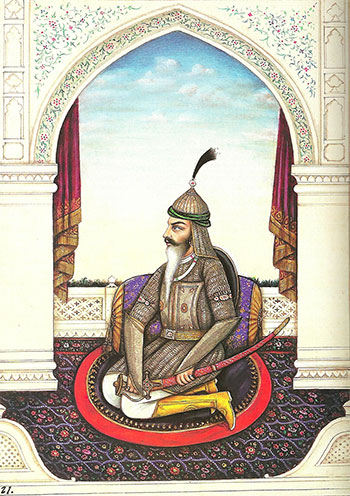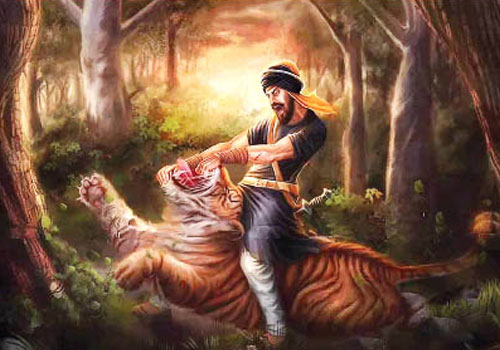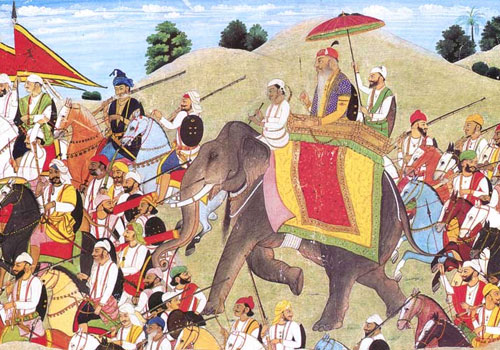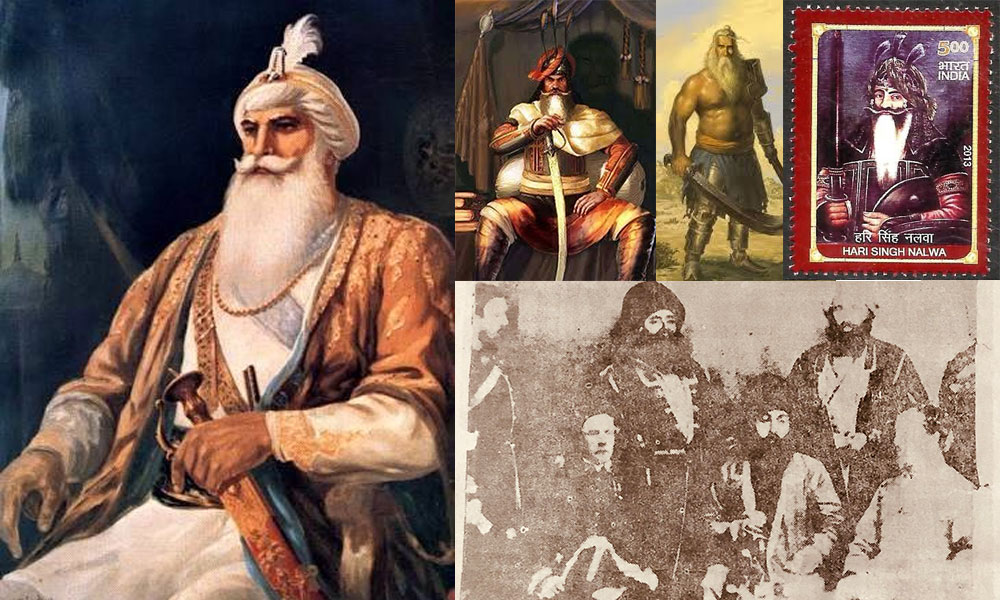Sardar Hari Singh Nalwa (सरदार हरि सिंह नलवा)

Hari Singh Nalwa (nicknamed Baghmar) was a remarkable figure in Indian history. Born in 1791 in Gujranwala, Punjab (now Pakistan), he was the commander-in-chief of the Sikh Khalsa Army, the military force of the Sikh Empire. Nalwa was known for his bravery, military prowess, and strategic genius and was instrumental in expanding the borders of the Sikh Empire. His father was Gurdial Singh Uppal, and his mother was Dharam Kaur. He married Amrit Sanchar when he was ten years old.From a very young age, he started to manage his father’s estate. He was given a position as a personal attendant in Maharaja Ranjit Singh’s court. He had two wives (as was customary at the time), four sons, and two daughters.


Nalwa fought in many battles, including the Battle of Kasur, Sialkokt, Jammu, Attock, Multan, Shopian, Mangal, Mankera, Nowshera, Sirikot, Saidu, Balakot, Peshawar, Jamrud, and more. One of Nalwa's most notable achievements was his conquest of the fortress of Attock, which was considered impregnable at the time. He also led the Sikh army in battles against the Afghans, the British, and the Nepalese and was victorious in each engagement. His successes on the battlefield earned him the admiration of Maharaja Ranjit Singh, and he was appointed governor of the newly conquered territories. In addition to his military accomplishments, Nalwa was also known for his fair and just governance. He is credited with establishing a system of governance that was based on the principles of equality and justice. He worked to improve the lives of the people living in the territories under his control and is remembered for his efforts to promote education, healthcare, and economic development.
Not only did he have a rich military career, he was also an administrator and diplomat. His administrative rule covered 1/3 of the Sikh Empire. He even managed to take control of the most chaotic and troublesome areas of the Empire. He also headed a diplomatic mission to Lord William Bentickt, Governor General of British India, at the time. He was also a builder, with at least 56 buildings attributed to him. He built many forts, towers, ramparts, gurudwaras, temples, mosques, towns, havelis, gardens, and more.

Despite his many achievements, Nalwa's life was cut short by a tragic turn of events. In 1837, he was killed in battle while defending the Sikh Empire against an invading force of Afghans. His death was a great loss to the Sikh people, and he is remembered as a hero and a symbol of Sikh strength and courage. Nalwa's legacy lives on to this day. His bravery and military prowess have made him a legend in Sikh history, and his dedication to justice and equality have earned him the respect and admiration of people from all walks of life. He remains an inspiration to us all, and his contributions to the Sikh Empire and to the people of Punjab will not be forgotten.
Leave Your Suggestion